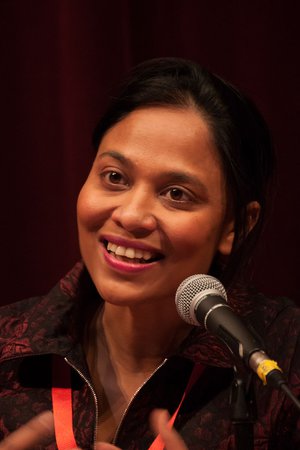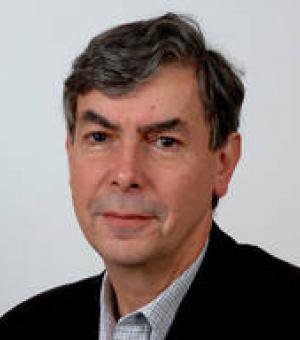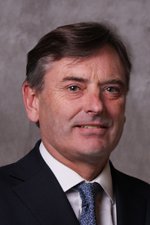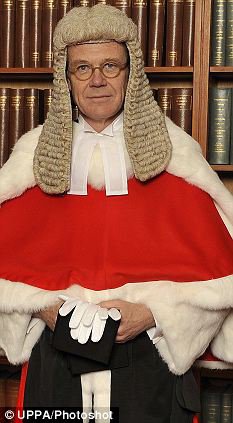The College has elected five new Honorary Fellows
Rushanara Ali MP
 Rushanara Ali read Philosophy, Politics and Economics at St
John’s, matriculating in 1993.
Rushanara Ali read Philosophy, Politics and Economics at St
John’s, matriculating in 1993.
Ali is currently the Labour Member of Parliament for Bethnal Green and Bow, and has held this seat since the 2010 general election. As an MP, she has served as Shadow Minister for International Development, Shadow Minister for Education and Young People and, more recently, as UK trade envoy to Bangladesh. Prior to her election to Parliament, Ali served as Associate Director of the Young Foundation, a non-profit think tank that tackles structural inequality in Britain.
Ali is the first person of Bangladeshi origin to win a seat in Westminster. In 2009, she was named by the Guardian as one of the most powerful Muslim women in Britain. As part of her work with the Young Foundation she helped to develop UpRising, an employability charity which has helped thousands of young people develop their campaigning and leadership skills. Ali has continued her work with youth organisations, recently co-founding One Million Mentors, a national online platform to recruit, train and deploy one million mentors into organisations working with young people.
Professor John Darwin FBA
 John Darwin
read Modern History at St John’s matriculating in 1966.
John Darwin
read Modern History at St John’s matriculating in 1966.
Darwin is one of the most distinguished historians currently at work, a path-breaking historian of the British Empire. His first three books – Britain, Egypt and the Middle East (1981), Britain and Decolonization (1988) and The End of the British Empire (1991) – were pioneering studies of their subjects and are still fundamental to debates today.
Darwin’s most important contribution not just to scholarship but to the wider public understanding of history can be found in his most recent trilogy of books. These are genuinely global histories – history writing on an epic scale – and they have been greeted rhapsodically by reviewers. After Tamerlane: The Rise and Fall of Global Empires, 1400-2000 was celebrated in the Sunday Times as ‘Elegant and brilliant...wonderful and imaginative...a deeply significant book.’ The Empire Project: The Rise and Fall of the British World System, 1830–1970 was described by the Independent as ‘the finest, and will be the most influential, general survey of British imperial history’, while Unfinished Empire: The Global Expansion of Britain was hailed by History Today as a masterpiece which ‘deserves to supplant every other book on this topic’.
These achievements have made him a scholar with a genuinely global reputation. After Tamerlane was awarded the Wolfson Prize, the pre-eminent award for a history book. The Empire Project won the triennial Trevor Reese prize for Commonwealth and Imperial history. Darwin was elected a Fellow of the British Academy in 2012.
Sir Robert Devereux
 Robert
Devereux read Mathematics at St John’s, matriculating in 1975, with David
Stirzaker and Brian Davies as his tutors.
Robert
Devereux read Mathematics at St John’s, matriculating in 1975, with David
Stirzaker and Brian Davies as his tutors.
After a Masters course at Edinburgh University he joined the Civil Service in 1979, where he has remained apart from a short period on secondment. He had positions in International Development, Treasury and Social Security, before becoming Permanent Secretary for the Department for Transport in 2007. He became Permanent Secretary for the Department for Work and Pensions in 2011.
Devereux was knighted in the 2016 New Year’s Honours list, for services to transport and welfare and for voluntary services in Kilburn.
The Right Honourable the Lord Justice Hamblen (Sir Nicholas Hamblen Q.C., P.C.)
 Nicholas Hamblen read Law at St John’s, matriculating in 1976.
Nicholas Hamblen read Law at St John’s, matriculating in 1976.
After a distinguished student career at St John’s, he won a Kennedy Scholarship to Harvard where he read for the LLM. He entered practice as a Barrister in 1981 and practised in specialised commercial law areas such as shipping and insurance, taking silk in 1997. He became an Assistant Recorder in 1999, a Recorder in 2000 and a High Court judge in 2008. Nicholas Hamblen was appointed to the Court of Appeal in 2015 and to the Privy Council in 2016.
The Right Honourable the Lord Justice Lindblom (Sir Keith Lindblom Q.C., P.C.)
 Keith
Lindblom read Modern History at St John’s, matriculating in 1975.
Keith
Lindblom read Modern History at St John’s, matriculating in 1975.
He enjoyed a distinguished career at the English Bar, practising in a range of types of work (including criminal law as well as general civil law), but he soon began to specialise in planning law. He was called to the Bar in 1980 and become Queen’s Counsel in 1996. He became a Recorder in 2001, a deputy High Court Judge in 2009 and, in 2013, President of the Upper Lands Chamber (a tribunal which decides disputes concerning land, including the purchase of land affected by the proposals of a public authority or compensation for land compulsorily purchased). Keith Lindblom was appointed to the Court of Appeal in 2015 and to the Privy Council in 2016.